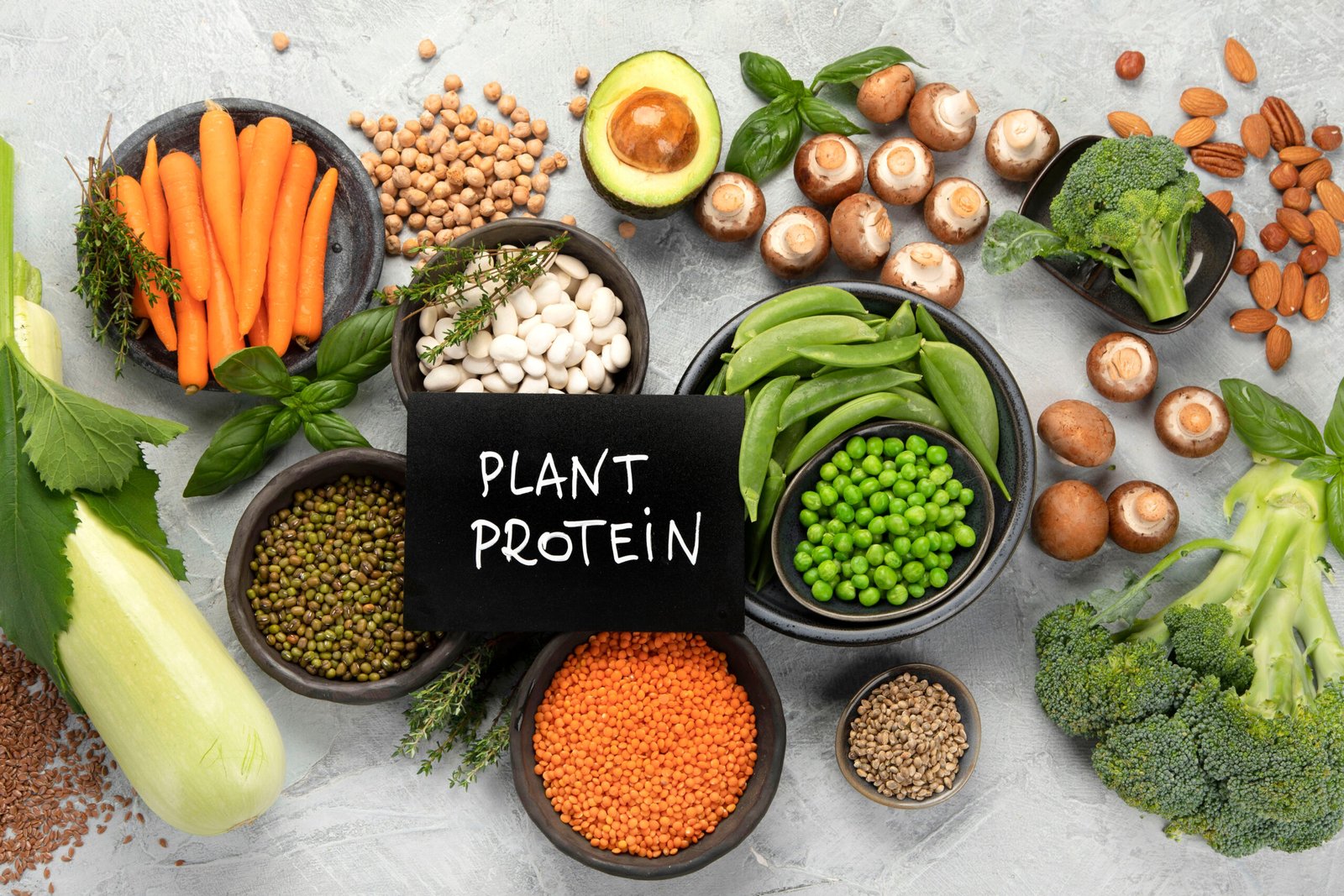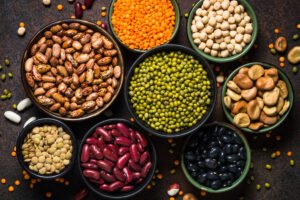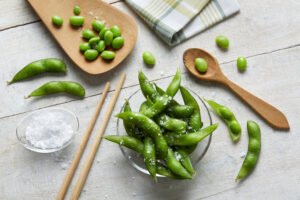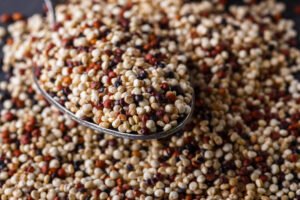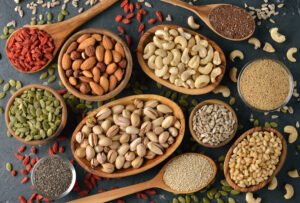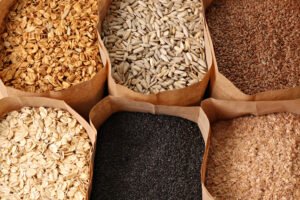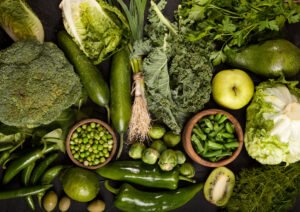Many people are concerned about meeting their protein needs when transitioning to a vegan diet. Where do vegans get their protein? Vegans get their protein from a variety of plant-based sources. Below are some common plant-based protein sources.
10 Plant-Based Protein Sources
(1) Legumes
Lentils, Chickpeas, black beans, kidney beans, etc.
(2) Tofu and Tempeh
Tofu (soybean curd), tempeh (fermented soybeans).
(3) Edamame
Young, green soybeans.
(4) Quinoa
A complete protein grain.
(5) Nuts and Seeds
Almonds, peanuts, chia seeds, sunflower seeds, pumpkin seeds, etc.
(6) Seitan
A high-protein meat substitute made from gluten (wheat protein).
(7) Plant-Based Protein Powders
Pea protein, rice protein, hemp protein, soy protein, etc.
(8) Whole Grains
Brown rice, oats, barley, bulgur, farro, etc.
(9) Vegetables
Broccoli, spinach, brussels sprouts, peas, etc.
(10) Plant-Based Dairy Alternatives
Soy milk, almond milk, oat milk, coconut milk (check for fortified options), etc.
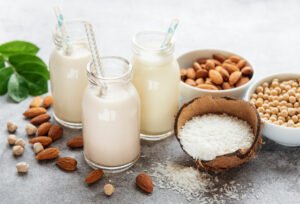
Whether you want to burn fat, build muscle, improve performance, or just live a healthy life, following a plant-based diet could work for you. By incorporating a variety of these sources into your diet, you can meet your protein needs. It’s important for vegans to ensure they get a balanced intake of essential amino acids from different plant sources. The above sources more than meets this requirement. Still have questions? Talk to a nutrition coach.

